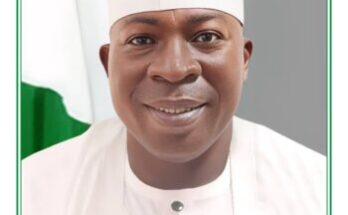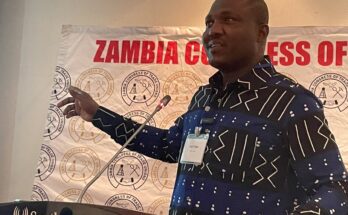Sunday Michael Ituma is the state programme coordinator of the federal government and Ebonyi state value chain programme funded by the International Fund for Agricultural Development (IFAD). In this interview with AMARACHUKWU EGWUAGHA, he says everything is being done to make rice and cassava affordable.
There are issues in agricultural sector that have led to the food crisis and other problems. What is your organisation doing to address them?
Ours is a value chain programme that only supports the value chains of rice and cassava in terms of production, processing and marketing. As usual, we have activities that are provided in the programme document that we support. If you come to production for rice and cassava, our key activity is our matching grant support which is where we provide input to farmers on a matching grant base. The farmers get inputs for their farming activities. IFAD underwrites 50 percent of the cost of the inputs on their behalf and they only pay 50 percent of the cost. So we provide them with improved seeds for rice and improve cassava cutting for those in cassava. We also provide them with fertilisers. We give the agrochemicals and also support them in land provision. Each farmer is expected to have a minimum of one hectare, so when you aggregate the cost of inputs and the assistance from IFAD, it shows that the programme understands the need to support farmers with these inputs for them to be able to do the agricultural production. Like you said, the high cost of inputs, access to finance is a problem, so it is in recognition of this that IFAD is able to do these. This money is given as grants to farmers and are not repayable. Also, we just concluded another programme designed to help farmers to overcome the impact of Covid-19. We supported over 300 farmers where we gave them inputs free. This support only got to the rice farmers. All these are aimed to alleviate the impact of the Covid and to also increased their capacities to produce rice to add to the food basket of our state and the country at large.
How many farmers have benefited from your programmes?
In aggregate, we have done over 21,000 farmers from the beginning but for this year under the RPM except for the rural boasting, we have supported 328 farmers with each of them doing one hectare of rice farming. That transmits to 328 hectares. This year, we are also going to support another 200 farmers with these inputs in rice and cassava production.
How do you select the farmers that benefit from your programmes?
There is a laid down criteria in selecting the beneficiaries. One is that you must be identified as a rural poor farmer, have access to land which is a minimum of one hectare, and you must belong to a recognised cooperative society. We have our extension agents that work in the local government areas we operate who identify these farmers and cue them into our database thereafter go and take georeferencing of their farms.
What are IFAD projections concerning 2023 in terms of programmes you have?
I told you that everything would be dependent on the financial portfolio that IFAD would allocate to the country and when that allocation is done, they do the allocation at the federal level and allocate to the state. So, it would be difficult for me to project what is going to happen next year until IFAD tells the country what we are likely to do based on the availability of resources.
Since you are the one leading the foundation, do you think there would be bumper harvest next year?
Yes, if you go to the field. It is true things are expensive, but it has also raised a lot of consciousness on our people to go to the farm. So even though these inputs are expensive, it has encouraged our people to now go into cultivation because before now, the people who farm did not have their farm yield and did not sell at good prices. Now, people are making a lot of money from their farms. So even though the cost of inputs is high, it is also encouraging more people to farm. Some who normally buy a bushel of rice in the market now go and farm, and from the farm, they get what they would at least eat and have excesses to sell. If you go all over the state now, you would see active farming in various communities. Our people are going to the farm because people are projecting. Every household now is trying all they can to establish their farm. So, we project that there is going to be food next year, we are also hopeful that from what we have seen, the weather is good for agricultural production this year and if all things work well, we are going to see food but we are not anticipating that the prices would also crash because nobody is expecting that the prices of food would drop but what is key is that the food would be available and the prices should be affordable.




